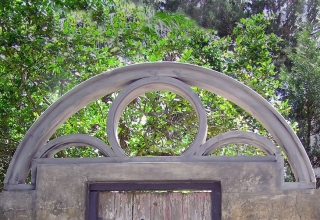
I think it was the environment. It wasn’t the right environment. I was frustrated with the academic environment. I was frustrated with the grand review process. I was frustrated with my salary. And I took it out on this poor guy was a web designer. It was ridiculous. I was upset about something else. My reaction wasn’t appropriate.
The executive said, “Look, if you’re worried about those things we can deal with them in order. But don’t take it on that poor guy. He didn’t do anything terrible. Don’t diminish yourself in that way.”
So yeah, but at the time I thought but but that company. I think about that conversation in the way that I have tough conversations with people because it’s all about you know about not reacting to the emotion and then dealing with the issue at hand.
I’ve always prided myself on being a good doctor. I’m a cerebral person. I love the complex problem solving. When I was at Hopkins colleagues would send me particular patients that were complex even in the Hopkins system. I’d pride myself on being the ultimate clinician, the one at the end of the road. I’d pride myself on not being the jerk who throws a chair across the lounge. And in that moment with the hospital executive I realized I was acting like that jerk – I was that jerk to the web designer – that’s how he saw me.
I left academic medicine and joined MedStar. I feel this type of work is really suited to me. I use all my skills – the cognitive skills, the problem solving skills, the scientific method, the way to think about problems.
I’m an introvert, and so find understanding people and relationships gets exhausting – tiring and exhausting and ultimately rewarding.
Yesterday I had a meeting with a physician to negotiate a small change in the organizational chart and a reporting relationship. It was consequential for him, and cost me nothing to give it to him. I got the most heartfelt email in the world, saying “Thank you. You know my frustration’s with the system, not with you. You’ve been great, thank you so much for your understanding me.”
I still wake up pretty happy everybody to come to work. I don’t have that, that sort of edge that I had for many years,
What role did the Physician Leadership Development Program play in your progress as a leader?
I’ve had a couple of coaches. They’ve both been terrific and have been extremely helpful. They do a lot more listening than talking and they let me go through what’s been happening. They’ve helped me understand some of the organizational dynamics and let me walk through them, with their insights into the company and how things work and where and how I can be helpful and influential. The fact that that all of you coaches have deep knowledge of the company, not just of the coached executives, also with the emotional intelligence aspects and the team management and general leadership competencies – you understand our company in a context has been incredibly helpful, especially when I was a young and inexperienced executive.
Download Article 1K Club




















Margaret Cary, MD MBA MPH PCC
August 25, 2018 at 10:01 am
Stu – your stories are why it’s important for leaders to be self-aware! You’ve done a lot of work with your coach, Rick Auman. He’s The Best!
Joy Goldman
August 26, 2018 at 11:42 am
Great interview and leadership principles. Dr. Levine models leveraging the polarity of confidence and humility! Having worked with leaders who report to him, I’m especially appreciative!